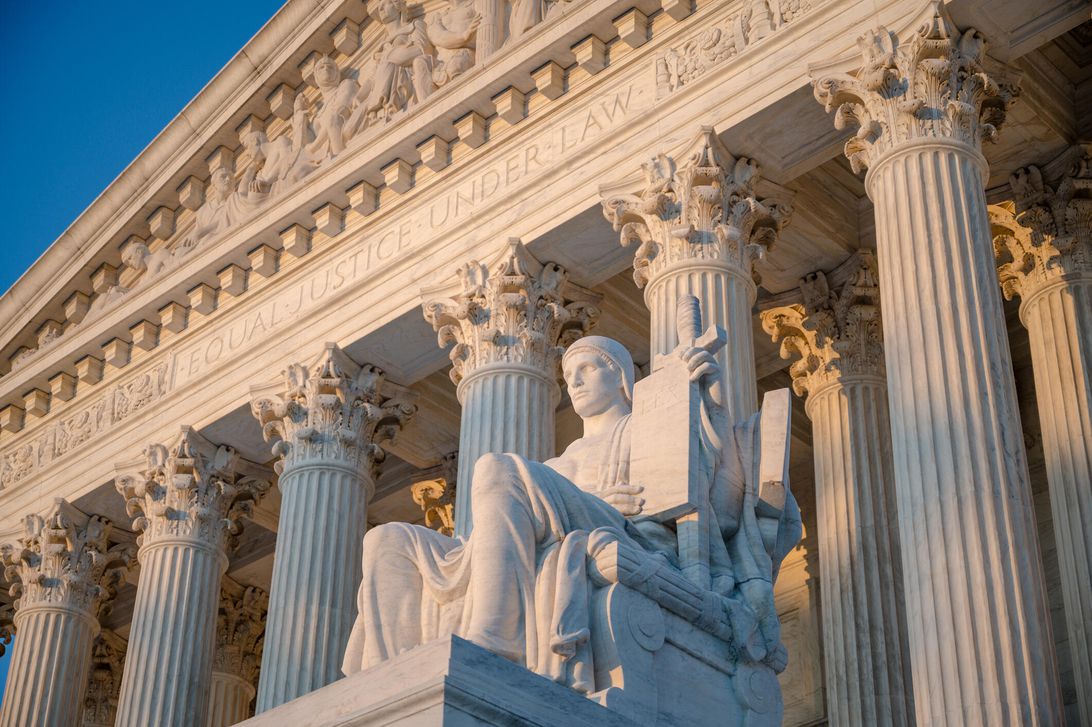
The Supreme Court building in Washington, DC.
Richard Sharrocks/Getty ImagesEditors' note: This court case focuses on social media posts that contain language some readers might find offensive.
The US Supreme Court ruled Wednesday that public school officials could not discipline a student for off-campus online speech, a landmark case that will impact how students use social media. In an 8-1 ruling, the court said that the Snapchat posts in question are entitled to First Amendment protections.
The case stemmed from an obscenity-laden Snapchat message that Brandi Levy, a Pennsylvania high school cheerleader, shared in 2017 after she failed to make the varsity squad. At the time, Levy was a freshman and a member of the junior varsity cheerleading team at Mahanoy Area High School. She posted the Snapchat message on a Saturday from a convenience store in Mahanoy City.
"Fuck school fuck softball fuck cheer fuck everything," Levy wrote, in a Snapchat message that included a photo in which she and a classmate held up their middle fingers. Levy shared the message to about 250 friends on the app, which allows you to post content that vanishes after 24 hours. School officials learned about Levy's message after a student screenshotted it and shared it with her mother. The school suspended Levy from cheerleading for a year for violating the team's rules against "foul language and inappropriate gestures" and posting "any negative information regarding cheerleading, cheerleaders or coaches placed on the internet.
Levy, through her parents and backed by the American Civil Liberties Union, sued the school district and the student was allowed back on the cheerleading squad. The school district, however, appealed to the US Court of Appeals for the 3rd Circuit. The court also sided with the student, noting that Levy's Snapchat message was sent off campus and suspending her violated the First Amendment. It eventually made its way to the Supreme Court.
The highly watched case centers on a historic 1969 Supreme Court decision that said students don't lose their First Amendment rights when they step onto school property. The case, known as Tinker vs. Des Moines, however, found that educators can suppress on-campus student speech if it causes a substantial disruption to school.
Levy's case focuses on whether the Tinker ruling applied to off-campus speech. The appeals court had earlier ruled that the precedent, set more than a half century ago during the Vietnam War, didn't apply to off-campus speech.
The Pennsylvania school district asked the Supreme Court to hear the case. In a brief, school officials said the ubiquity of smartphones, social media and the rise of remote learning during the coronavirus pandemic has blurred the lines between on- and off-campus speech. Schools have long regulated off-campus speech and the Third Circuit's decision would undermine their ability to address harassment, abuse and other disruptive speech that happens off school grounds.
David Cole, an American Civil Liberties Union lawyer, told the Supreme Court justices in April that extending the Tinker decision to include off-campus speech would "require students to effectively carry the schoolhouse on their backs in terms of speech rights everywhere they go." Cole also said it would interfere with parenting at home. "For young people, the ability to voice their emotions to friends without fear of school censorship may be the most important freedom of all," he told the justices.
